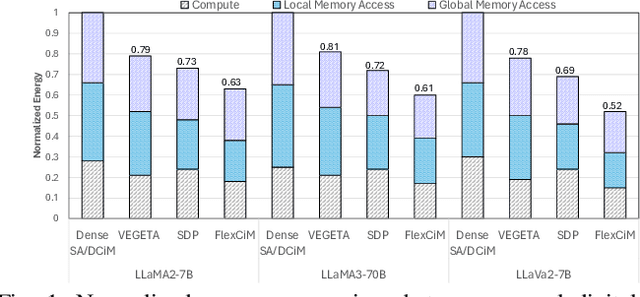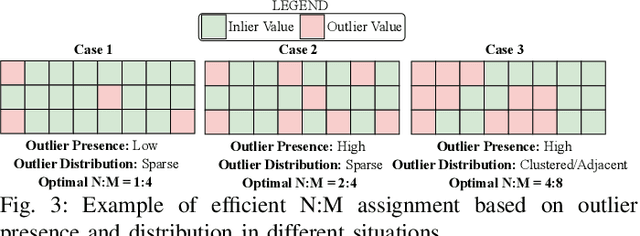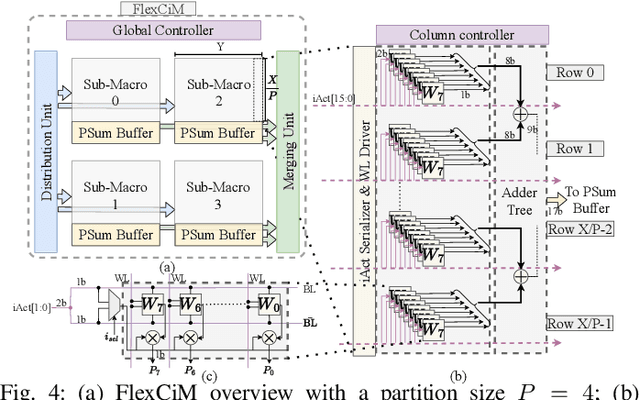Deepak K. Mathaikutty
Accelerating LLM Inference with Flexible N:M Sparsity via A Fully Digital Compute-in-Memory Accelerator
Apr 19, 2025



Abstract:Large language model (LLM) pruning with fixed N:M structured sparsity significantly limits the expressivity of the sparse model, yielding sub-optimal performance. In contrast, supporting multiple N:M patterns to provide sparse representational freedom introduces costly overhead in hardware. To address these challenges for LLMs, we first present a flexible layer-wise outlier-density-aware N:M sparsity (FLOW) selection method. FLOW enables the identification of optimal layer-wise N and M values (from a given range) by simultaneously accounting for the presence and distribution of outliers, allowing a higher degree of representational freedom. To deploy sparse models with such N:M flexibility, we then introduce a flexible, low-overhead digital compute-in-memory architecture (FlexCiM). FlexCiM supports diverse sparsity patterns by partitioning a digital CiM (DCiM) macro into smaller sub-macros, which are adaptively aggregated and disaggregated through distribution and merging mechanisms for different N and M values. Extensive experiments on both transformer-based and recurrence-based state space foundation models (SSMs) demonstrate that FLOW outperforms existing alternatives with an accuracy improvement of up to 36%, while FlexCiM achieves up to 1.75x lower inference latency and 1.5x lower energy consumption compared to existing sparse accelerators. Code is available at: https://github.com/FLOW-open-project/FLOW
 Add to Chrome
Add to Chrome Add to Firefox
Add to Firefox Add to Edge
Add to Edge